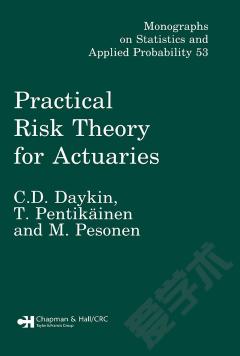Risk Analysis in Theory and Practice
The objective of Risk Analysis in Theory and Practice is to present this analytical framework and to illustrate how it can be used in the investigation of economic decisions under risk. In a sense, the economics of risk is a difficult subject: it involves understanding human decisions in the absence of perfect information. How do we make decisions when we do not know some of events affecting us? The complexities of our uncertain world and of how humans obtain and process information make this difficult. In spite of these difficulties, much progress has been made. First, probability theory is the corner stone of risk assessment. This allows us to measure risk in a fashion that can be communicated among decision makers or researchers. Second, risk preferences are now better understood. This provides useful insights into the economic rationality of decision making under uncertainty. Third, over the last decades, good insights have been developed about the value of information. This helps better understand the role of information in human decision making and this book provides a systematic treatment of these issues in the context of both private and public decisions under uncertainty. Balanced treatment of conceptual models and applied analysisConsiders both private and public decisions under uncertaintyWebsite presents application exercises in Excel
{{comment.content}}








 京公网安备 11010802027623号
京公网安备 11010802027623号